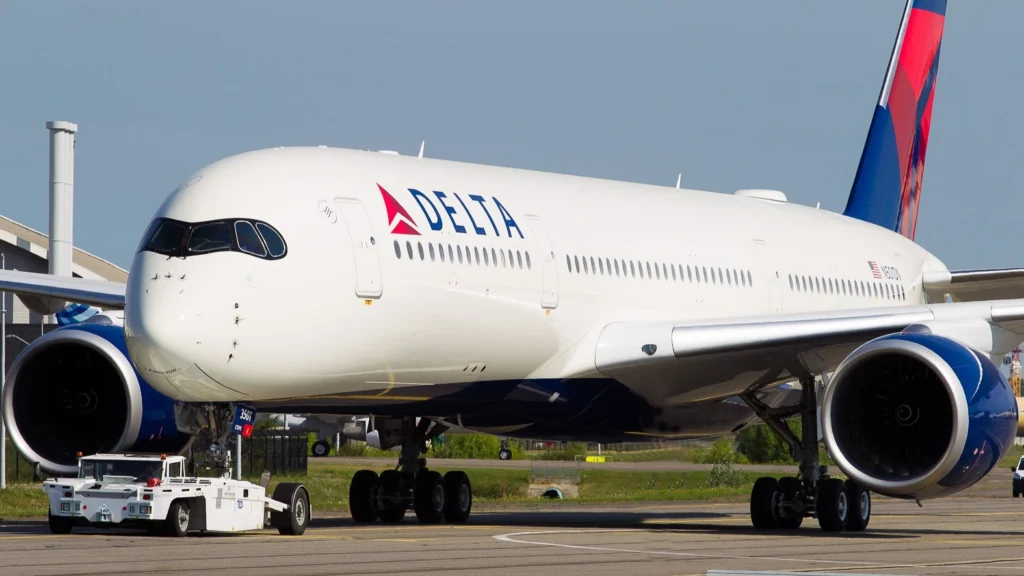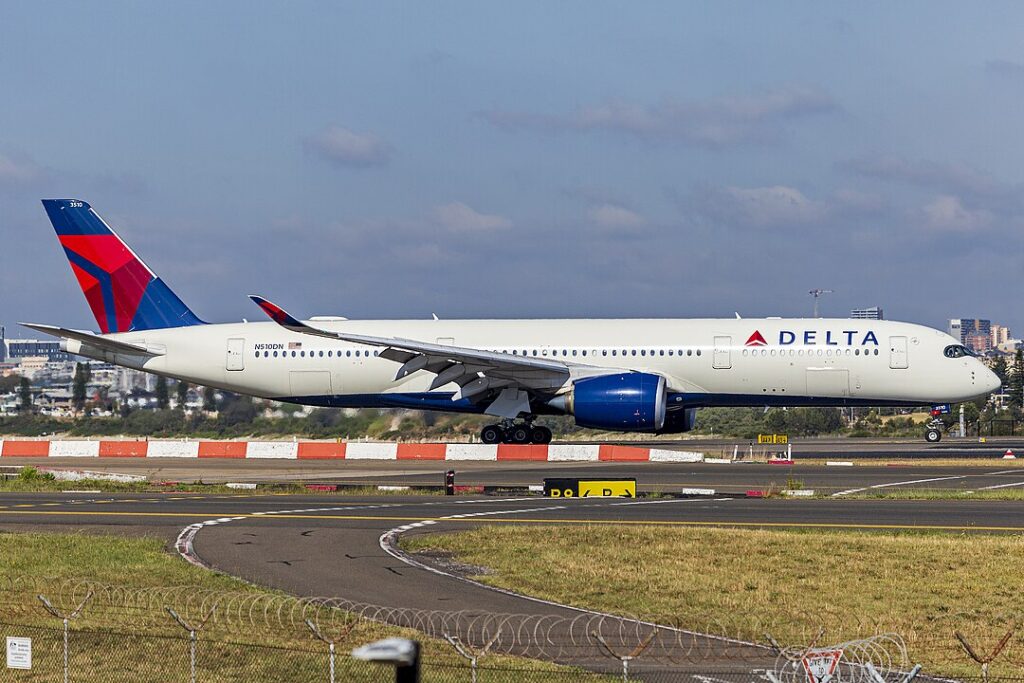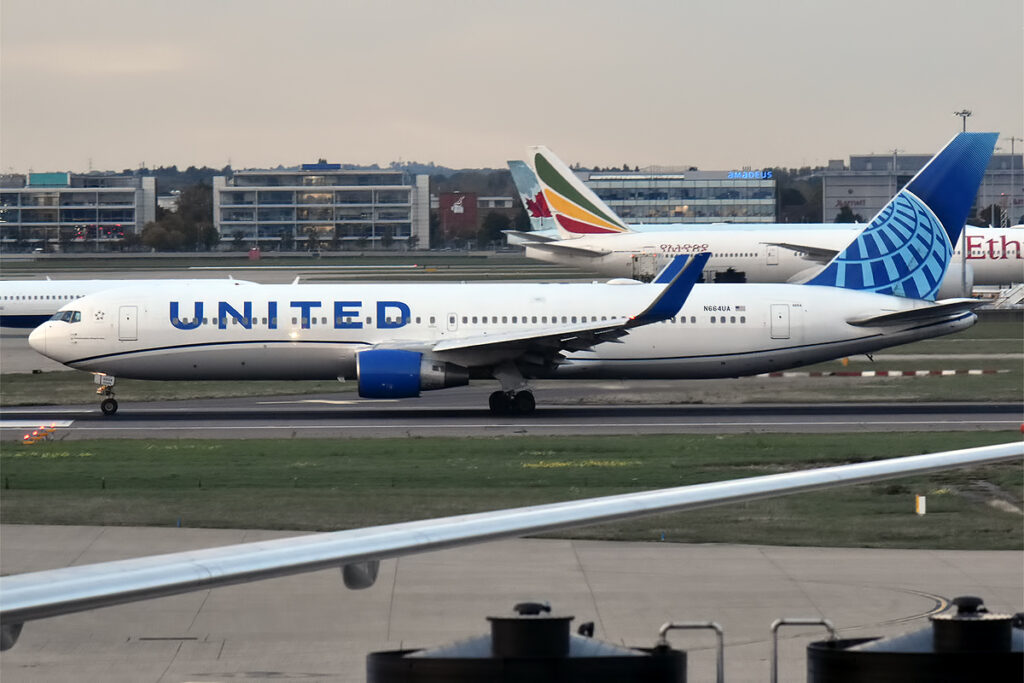
TOKYO— A Delta Air Lines (DL) flight departing from Tokyo Haneda Airport (HND) to Minneapolis–Saint Paul (MSP) was abruptly canceled after a hydraulic issue halted takeoff on June 29, 2025. The flight, DL120, was later scrapped due to weight restrictions despite initial maintenance efforts.
Passengers were promptly rebooked and supported with hotel accommodations, meal vouchers, and an $800 e-credit, reflecting Delta’s (DL) efficient service recovery process.
 Photo: Clément Alloing
Photo: Clément AlloingDelta Flight Abort Takeoff
Flight DL120 was scheduled to operate from Tokyo Haneda Airport (HND) to Minneapolis–Saint Paul International Airport (MSP), with passengers continuing to various U.S. destinations, including Boston Logan (BOS).
After boarding and taxiing to the runway, the aircraft’s engines revved for takeoff before the pilots aborted the process, citing a hydraulic system malfunction.
The flight was scheduled to be operated by an 8.1-year-old Airbus A350-900, registered as N501DN.
The aircraft was moved to a hardstand position where mechanics boarded to inspect and attempt a repair. Although the mechanical issue was reportedly resolved, the flight encountered a secondary issue—weight restrictions.
This forced the flight crew to consult with Delta’s headquarters to evaluate the possibility of offloading cargo or passengers. After extended deliberation, the decision was made to cancel the flight entirely.
The next day, on June 30, 2025, the airline operated a ferry flight DL9960 from Tokyo to Los Angeles (LAX).
A few days back, Delta cancelled the Los Angeles to Paris flight scheduled to be operated by the same aircraft (N501DN).
 Photo: By Bidgee, CC BY-SA 3.0 au, https://commons.wikimedia.org/w/index.php?curid=95400717
Photo: By Bidgee, CC BY-SA 3.0 au, https://commons.wikimedia.org/w/index.php?curid=95400717Passenger Support
Delta Air Lines executed a rapid recovery strategy following the cancellation. Affected travelers were assisted upon deplaning, receiving clear instructions, meal and hotel vouchers, and guidance on the reimbursement process.
One traveler was rebooked on an alternative route via DL flights from Haneda (HND) to Los Angeles (LAX), and then onward to Boston (BOS).
Checked baggage was efficiently rerouted and made available promptly. Delta offered flexible hotel arrangements, covering expenses up to JPY30,000 for accommodations and JPY5,000 for meals and transport. Passengers had the option to use Delta’s designated hotel or choose one independently.
Additionally, the airline expedited compensation. Passengers who submitted receipts for meals and lodging were reimbursed before even arriving at their next destination.
In one case, Delta issued an automatic $800 e-credit for the inconvenience, without requiring a formal request. One traveler even received a Delta One upgrade on the LAX–BOS segment due to elite status and upgrade availability.
ASLO READ: Boeing 747 Aborts Takeoff at High Speed, All 16 Tires Deflated
 Photo: By Anna Zvereva – https://www.flickr.com/photos/130961247@N06/52436571776/, CC BY-SA 2.0, https://commons.wikimedia.org/w/index.php?curid=125818748
Photo: By Anna Zvereva – https://www.flickr.com/photos/130961247@N06/52436571776/, CC BY-SA 2.0, https://commons.wikimedia.org/w/index.php?curid=125818748Similar Incident
A United Airlines (UA) Boeing 767-300 operating Flight UA12 from Zurich Airport (ZRH) to Chicago O’Hare (ORD) was forced to abort takeoff at high speed on June 24, 2025.
The aircraft, carrying 142 people, came to a stop on Runway 16 after the flight crew initiated a rejected takeoff at approximately 145 knots. Emergency crews responded swiftly, and passengers were safely evacuated with no injuries reported.
United Airlines Flight UA12, a transatlantic service scheduled to depart Zurich (ZRH) at 09:50 local time, was operated using a Boeing 767-300 (registration N684UA). The flight was bound for Chicago O’Hare International Airport (ORD) when the crew performed a high-speed rejected takeoff while accelerating down Runway 16.
At approximately 145 knots—beyond the standard V1 decision speed—the flight crew initiated the rejected takeoff. The aircraft came to a complete stop shortly past the intersection with Runway 28. As a result of the abrupt braking, multiple main landing gear tires deflated.
Passengers were safely evacuated via mobile stairs positioned directly on the runway. No injuries were reported among the 142 passengers and crew onboard. Emergency responders secured the aircraft, and Zurich Airport temporarily closed the affected runway.
Initial tower communications reveal that the pilots initially believed they could clear the runway and perform standard post-abort checks. However, Zurich tower instructed them to hold position due to emergency services already en route.
Technical Cause Under Investigation
United Airlines confirmed to Swiss media that a “technical issue” prompted the rejected takeoff. Although the airline has not specified the nature of the fault, maintenance teams were dispatched, and the aircraft was later towed to a remote stand after nearly four hours of immobilization.
During that time, Zurich Airport (ZRH) experienced minor operational disruptions. However, flights continued via alternate runways, minimizing the broader impact on airport traffic.
A spokesperson for United Airlines stated that affected passengers were rebooked on alternate services, with customer care teams assisting at the airport.
Stay tuned with us. Further, follow us on social media for the latest updates.
Join us on Telegram Group for the Latest Aviation Updates. Subsequently, follow us on Google News
Delta Detroit to Tokyo Flight with A350 Diverted to Los Angeles
The post Delta Air Lines A350 Pilots Abort Take-off at Tokyo Haneda appeared first on Aviation A2Z.

 5 miesięcy temu
5 miesięcy temu








![Powiat łosicki. Policyjny bilans z minionego tygodnia [09-14.12]](https://static2.slowopodlasia.pl/data/articles/xga-4x3-powiat-losicki-policyjny-bilans-z-minionego-tygodnia-09-14-12-1765881847.jpg)


